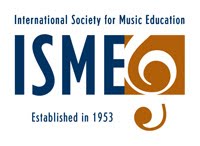Theatre For Development and Peace
A. D. McKenzie
PARIS, Mar 24 (IPS) - Some African playwrights say they want to
use drama to promote development and peace, and they appealed to
world leaders to listen on World Theatre Day, celebrated
Wednesday.
"While nations spend colossal sums of money on peace-keeping
missions in violent conflict areas of the world, little
attention is given to theatre as a one-on-one alternative for
conflict transformation and management," said Jessica Kaahwa, the
Ugandan playwright known for using theatre to foster community
development.
Kaahwa presented the world premiere of 'Putting Words Between
The Eyes', a 20-minute, one-act play that she created especially
for World Theatre Day, celebrated in Paris at the headquarters of
UNESCO, the U.N. cultural agency.
Set in the fictional republic of Sarkina, which has just gone
through a protracted violent conflict, the play looks at how
people try to rebuild shattered lives.
It also shows well-meaning ambassadors trying to overcome their
despair in the face of failed peace resolutions, as both
civilians and peacekeepers get caught in the "dilemma of hope and
distrust", according to Kaahwa.
Perhaps intentionally, the play evoked the current conflicts in
Libya and elsewhere in North Africa and the Middle East, with a
sense of desolation and sound effects that included the screaming
of warplanes and the firing of guns.
"Theatre subtly permeates the human soul gripped by fear and
suspicion, by altering the image of self - and opening a world
of alternatives for the individual and hence the community,"
Kaahwa said in her keynote message.
"Theatre can give meaning to daily realities while forestalling
an uncertain future. It can engage in the politics of peoples'
situations in simple straightforward ways," she added.
In Uganda, Kaahwa has used drama to raise awareness of human
rights as well as gender rights, according to Tobias Biancone,
secretary general of the International Theatre Institute, a
non-governmental organisation associated with UNESCO that
organises the World Theatre Day.
He said that theatre was effective and "will never die" because
it was done "live by humans in front of other humans". In
Africa, as in other regions, this directness meant that theatre
could be used to promote development.
Uganda's deputy head of mission, Philip Odida, said that the
World Theatre Day focus on Africa showed that the continent's
creative arts were "rich and flourishing" and undergoing renewed
growth as a result of new information technologies for recording,
editing, storing and distribution of sound and images.
The playwrights and performers showed that theatre "goes beyond
entertainment, and also serves as an important means of
instruction, information and education," Odida said.
Many attending the day's events seemed to agree as they
commended the performances of actors such as Thembi
Mtshali-Jones who used humour, dance and song to convey the
painful experiences of a child growing up under apartheid in
South Africa.
The 15-minute extract of her one-woman play, 'A Woman in
Waiting', was also international in scope, as it highlighted the
problems of domestic workers who leave their children behind to
be raised by grandparents, sending home shoes and clothes that no
longer fit.
"The play was powerful and extraordinary because through the
performance she managed to get us back to South Africa and to
her childhood where the laws were such that domestic workers had
to be separated from their children, seeing them only once a
year," said Vanessa Mkhize-Albertini, a Paris-based South African
activist.
"The child had to wait for the mother to return home, and even
when she finally got to live in the city with her parents, she
still had to wait for the mother to come home from working,"
Mkhize-Albertini told IPS. "That's the reason for the title."
In a different vein, an actor and writer from the Central
African Republic, Modeste Nzapassara, had the audience laughing
out loud with his portrayal of the immigrant experience in France.
In an excerpt from 'Black Bazaar', based on the novel by Alain
Mabanckou, he showed how ignorance about immigrants' origins can
lead to some absurd encounters, as when people in the host
country confuse the Democratic Republic of the Congo with the
Republic of the Congo and lecture immigrants on what needs to be
done "over there".
One downside to the UNESCO World Theatre Day event, however,
was that a percussionist troupe invited from the Sudan was
absent because they were unable to get visas to enter France.
(FIN/2011)




